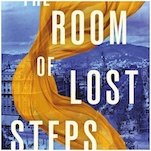A Likeable Woman Is a Rare Misstep From Summer Thriller Queen May Cobb

May Cobb is an author that has rapidly established herself as a summertime staple: Her female-centric domestic thrillers The Hunting Wives and My Summer Darlings are the very definition of indulgent, escapist fare, the sort of perfect poolside reading inherently promised by their neon-bright covers. Her latest novel, A Likeable Woman, initially seems as though it will follow the same format—its slightly provocative, thoroughly beachy cover feels right in line with her previous work.
But fans may be slightly surprised (and even disappointed) to discover that those are where similarities between A Likeable Woman and Cobb’s previous works generally end. That’s not entirely true—this is an author who still excels at giving largely unlikeable lead characters compelling emotional arcs and original stories—but its slow burn, largely formulaic mystery and underwritten characters make this summer thriller feel a lot more like homework than a decadent treat.
The story follows Kira Foster, a girl who grew up in a small East Texas town but was shipped off to boarding school following her mother Sadie’s suicide. Convinced that her mother would never have killed herself, Kira has ever really been able to get past her death: She’s abandoned her art, works a dead end job, and has cut off most contact with the family she left behind. Lonely and bored, she spends most of her time crafting an image of the Hollywood-style life she’s not living on her Instagram.
But when an invitation to a hometown reunion arrives—alongside a call from her estranged grandmother that suggests she’s ready to hand over an important family heirloom that may shed new light on Sadie’s death—Kira reluctantly heads back to Texas, to confront old ghosts and try to find out once and for all what happened to her mother. Along the way, she receives threatening texts that warn her to leave the past alone, rekindles some feelings with her teenage crush and BFF Jack, and finds out some uncomfortable truths about the people in the town she left behind.
Like most of Cobb’s work, the story of A Likeable Woman is at its best when it’s exploring the complex (often toxic) threads between women in small towns. The catty frenemies vibe that exists between women who have not only known each other at virtually every stage of their lives but failed to see much of the world beyond their hometown is on the nose uncomfortable, as is widespread gossip, backstabbing, and performative attempts to repair marriages in crisis mode. Kira’s difficult relationship with her sister Kate—and the ways their individual relationships with and memories of their mother diverge—is particularly fascinating, and something I wish we’d spent more time with.
-

-

-

-

-

-

-

-

-

-

-

-

-

-

-

-

-

-

-

-

-

-

-

-

-

-

-

-

-

-

-

-

-

-

-

-

-

-

-

-








































